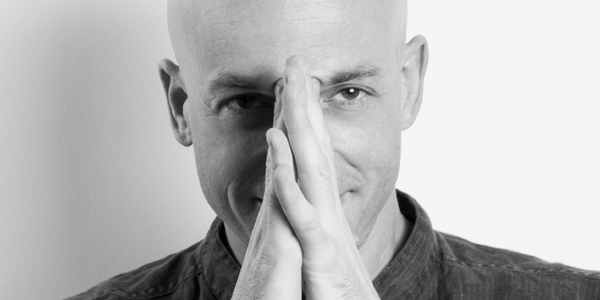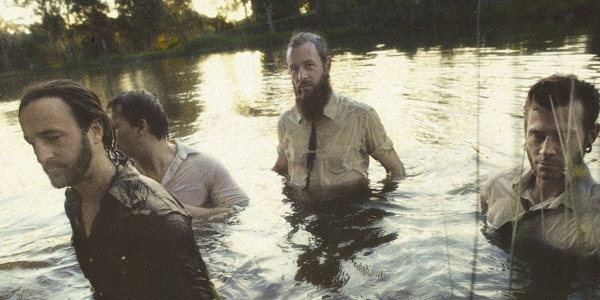Like most legends, Trevor’s career is nothing short of extensive. Circa 1990, when the acid house revolution was sweeping the UK, he was finishing school in the countryside just west of London. At first, he says, electronic music seemed repetitive and boring. But that quickly changed when he began to hit clubs, discovering the wealth of genres exploding at the time. Initially, techno and trance piqued his interest; labels like Harthouse and R&S. And he wanted to be a commercial sound engineer, to which end he spent a year making tea for “work experience”. “Then, someone took me to the Pagan and TIP parties in London,” he says, “this was before TIP was a label.” Like punk and rock, the sheer power of the sounds grabbed him, and his feet were placed upon the path he still treads today. “I wanted to work on all styles of music, but then when I started writing my own stuff on the trance tip, I just kept going from there,” he says.
Produced with Matt Coldrick, a blistering 12-inch titled Conflict/Cor was the result of these studio experiments, and came out under a particularly quirky banner: Green Nuns Of The Revolution. “It was the name of Muammar Gaddafi’s elite female bodyguard,” Trevor says. “It just seemed such a silly name, so we took it. Matt heard it on the news one night and couldn’t stop laughing about it.” Despite the wonky name, the duo’s music got the respect it deserved, leading to several more records. Sadly, the classic project ended in 1998. Spanning just four years, the duo’s discography is short and sweet, including an album for Flying Rhino and singles on TIP, Dragonfly and Triumph.
Today, Trevor’s sound has shifted somewhat from the more Goa-leaning escapades of his past. But, he says, “I think I still make something with an old school flavour now. I can’t seem to get away from it. And over the last three or four years there has been a bit of a resurgence for the old ‘Goa’ sound within the scene.” He mentions a group of Israeli promoters who force DJs to sign contracts agreeing they won’t play anything made after the year 2000. “When we all got into writing this music originally,” he says, “there were no real rules. Everyone’s music sounded a bit more varied then as we all had different equipment from each other in our studios. But now, everyone uses the same software and presets.”
That’s not all that’s changed, Trevor says. Though he’s “never bought into it”, he loves the spritualistic or mystical vibe which is part of psy-trance’s heritage. But he admits it has diminished somewhat over the years. “It made it things a lot more colourful, and you did used to meet a certain kind of person at these parties, and still do,” he says. “But it was and still is a very global community which brings together a lot of people from a lot of different cultures from all round the world, rather than some scenes which can be insular to their particular country. I think this has been one of the best things about it.”
Accordingly, he remembers multiple occasions where he’s seen nervous first-timers at festivals. Nearly always, they end leaving exhausted but smiling, with one exception: a guy he saw in Switzerland, who walked up a hill to a portaloo and went in, only for the loo to topple over and slide 100 metres down the hill, door side down. “He was ok…after a shower,” Trevor says.
When it comes to Australia, many visitors enthuse that the aforementioned old-school vibe still persists.
Maybe that’s true,” Trevor says. “There’s always a great spirit in the parties in Oz, which feels like the old days of rave or dance when people would just really let go.” Elsewhere, he says, things fluctuate. “Brazil is still busy but not at all like it used to be, and Japan is very non-trance at the moment. Other parts of South America are beginning to kick off now, like Chile. And I’m off to play in Peru very soon, which I’m really intrigued with.” But ironically enough, he cites India as the most rapidly emerging destination. Despite a non-stop trance presence in Goa, it’s only recently that the sound has begun to move inland and gain popularity in country’s sprawling cities.
Of course, in the case of psy-trance, Trevor’s home base in the UK has always been a force. “Back in the ‘90s there were less producers around and I guess a good core of them were releasing in the UK, even if they weren’t from here,” he says. “So the UK had a strong role. Now, there are so many more people writing and releasing their music in different coutries that we’re just a part of the whole picture. I think we’ve got a good team though, all doing their own things – Twisted, Liquid, Nano, Wild Things, Bom Shanka, to name a few.” Despite this influx of new talent, the scene is still relatively small, he says.
“I think that promoters check on who’s popular with things like Beatport so that’s why you see the same names cropping up, the DJs who appear at festivals often are the ones who appear on the charts a lot.”
Perhaps this is why Trevor’s own touring schedule is so packed. Whether appearing solo or in a group, he’s a frequent presence in Beatport’s charts. More often than not, however, his career has been studded with partnerships. “I get bored quite quickly on my own in the studio,” he says. “Dance music should be a fun experience, as you have to translate that to the dance floor.”
In other words, he prefers to share ideas, in the name of a better vibe. Besides, “If I write on my own I take ages to finish anything; you never know when to stop. That’s the art.” Over the years, this preference for collab has seen him working with the best of the best. Simon Posford, Tristan, Aphid Moon, John “Phantasm” Ford and his son, Eskimo. He even did a vocal house track with Danny Howells. “I’d love to write more styles,” Trevor says, “that’s why it was great to meet Danny and branch off with him, but there isn’t enough time in between writing the trance.” He’s making time though, it seems. His most recent project is with another veteran psy-trancer, James Monro, and focuses on tech-house: “I’ve found it really refreshing, I’d love to do more of that.” Clearly, Dick Trevor has much to offer the world yet.
BY ICON

